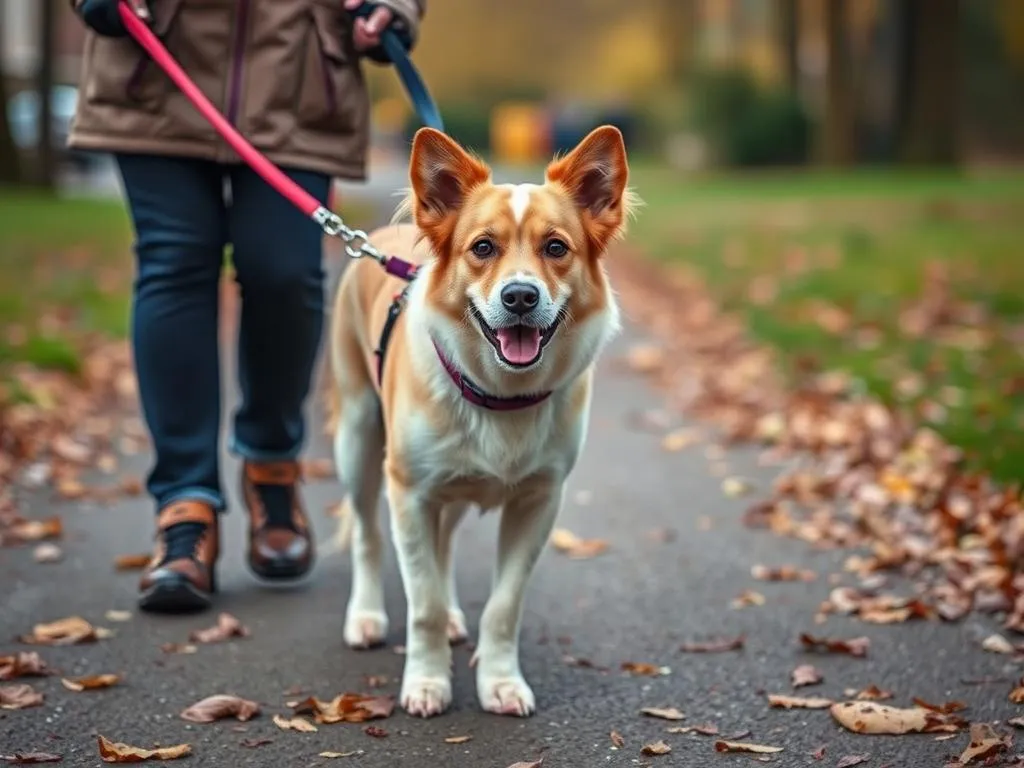
Introduction
Regular walks are not just a luxury for our furry friends; they are essential for their physical and mental well-being. Engaging in daily walks helps dogs maintain a healthy weight, burn off excess energy, and provides them with vital mental stimulation. A well-exercised dog is less likely to exhibit behavioral issues such as chewing, barking, or anxiety. However, busy schedules, health concerns, or travel obligations can make it challenging for dog owners to ensure their pets get the exercise they need. This is where hiring a dog walker can be a game-changer.
Whether you’re juggling a demanding job, facing mobility challenges, or planning a getaway, hiring a dog walker can ensure your furry companion remains active and happy. The following guide will help you navigate the process of how to hire a dog walker, ensuring you find the perfect match for your dog’s needs.
Understanding Your Needs
Assessing Your Dog’s Needs
Every dog is unique, and their walking requirements can vary significantly based on factors like activity level and breed. High-energy breeds, such as Border Collies or Labrador Retrievers, often require longer and more vigorous walks compared to lower-energy breeds like Bulldogs or Basset Hounds. Additionally, consider any special needs your dog might have, such as age-related issues or health conditions that affect their mobility.
Your Schedule and Availability
Before you start searching for a dog walker, take a moment to assess your daily routine. Identify the times you are usually available for walks and how often your dog needs to be walked. This could be once a day, twice, or even multiple times if you have a particularly active dog. Knowing your schedule will help you communicate your needs clearly to potential walkers.
Budgeting for Dog Walking Services
Understanding the financial aspect of hiring a dog walker is crucial. The average cost of dog walking services can vary widely based on factors such as location, duration of the walk, and the walker’s experience. Typically, you can expect to pay anywhere from $15 to $30 for a 30-minute walk. Additional services or special needs may increase this cost. It’s essential to establish a budget that aligns with your financial situation while also ensuring your dog receives quality care.
Types of Dog Walking Services
Individual Dog Walkers vs. Dog Walking Companies
Deciding whether to hire an individual dog walker or a professional dog walking company is an important step. Individual walkers often provide a personal touch and can develop a strong bond with your dog. However, they may lack backup support in case of emergencies. On the other hand, dog walking companies often have multiple staff members, which can provide more reliability and a range of services but may come with higher costs.
Group Walks vs. Solo Walks
Both group walks and solo walks offer distinct benefits. Group walks can provide socialization opportunities for your dog, allowing them to interact with other dogs and people. This can be especially beneficial for dogs that thrive on social interaction. Conversely, solo walks allow for more focused attention and tailored experiences specific to your dog’s needs, which may be necessary for dogs with behavioral issues or special requirements.
Additional Services Offered
Some dog walkers offer additional services such as pet sitting, training, or even grooming. If you’re looking for comprehensive care for your pet, it might be worth considering a walker who can provide these extra services, giving you peace of mind while you’re away.
Finding Potential Dog Walkers
Where to Look for Dog Walkers
Finding potential dog walkers can be straightforward if you know where to search. Online platforms like Rover and Wag make it easy to connect with local dog walkers and read reviews from other pet owners. Additionally, consider checking local community boards or pet supply stores for flyers and recommendations.
Utilizing Social Media and Apps
Social media can be a powerful tool in your search for a dog walker. Look for Facebook groups focused on pets in your area or use pet community apps to find local walkers. Using local hashtags can also connect you with services available in your vicinity.
Asking for Recommendations
Don’t underestimate the power of word-of-mouth. Friends, family, and even your veterinarian can provide valuable recommendations. Ask them about their experiences with dog walkers and if they can suggest anyone trustworthy.
Evaluating Candidates
Checking Credentials and Experience
Once you have a list of potential candidates, it’s crucial to check their credentials and experience. Ensure that they have proper training and any necessary certifications, especially if your dog has specific needs. A background check can also provide peace of mind, knowing that the person walking your dog has a clean record.
Reading Reviews and Testimonials
Take the time to read reviews and testimonials from other clients. Reliable reviews can give you insight into a walker’s reliability, personality, and how well they connect with dogs. Be on the lookout for any red flags in feedback, such as repeated complaints about missed walks or poor communication.
Conducting Interviews
Interviewing potential dog walkers is an essential step in the hiring process. Prepare a list of key questions to ask, such as their experience with specific breeds, how they handle behavioral issues, and what their walking routine looks like. It’s equally important to observe how the walker interacts with your dog; a positive connection can make all the difference.
Trial Walks and Assessments
Setting Up a Trial Walk
Before committing to a long-term arrangement, setting up a trial walk is beneficial. This allows you to see how the walker interacts with your dog and whether they are a good fit. Keep the trial walk to a reasonable duration, typically 30 minutes, to gauge initial reactions.
Observing Behavior and Compatibility
During the trial, pay attention to your dog’s behavior. Are they excited to see the walker? Do they seem comfortable? Signs of a good match include your dog being relaxed, engaging positively, and following the walker’s lead. Conversely, if your dog appears anxious or fearful, it may be a sign to continue your search.
Feedback and Communication
Maintaining open lines of communication with your chosen dog walker is essential. Encourage regular updates on your dog’s behavior and any concerns they might have. Setting up a system for feedback can help address issues promptly and ensure your dog is happy and well-cared for.
Establishing a Routine
Creating a Walking Schedule
Once you have chosen a dog walker, work together to create a walking schedule that suits both your and your dog’s needs. Consistency is key, as dogs thrive on routine. However, it’s also essential to remain flexible; life can be unpredictable, and your dog’s needs may change.
Communicating with Your Dog Walker
Keep your dog walker informed about your dog’s habits, preferences, and any changes in their routine. Discuss any behavioral changes, health issues, or special requirements your dog may have. This ongoing communication ensures your dog’s needs are consistently met.
Tracking Progress and Adjustments
Monitor your dog’s behavior after walks to see how they are adjusting. Are they calmer, happier, and more engaged? Document any significant changes, and don’t hesitate to discuss these observations with your dog walker. If you notice any issues, this is the time to reassess or even consider a different walker if necessary.
Safety and Trust
Ensuring Safety During Walks
Safety should always be a priority during walks. Ensure your dog walker understands the importance of using leashes, harnesses, and ID tags. Discuss emergency protocols, including what to do if your dog gets loose or encounters another aggressive dog. Make sure they have your contact information readily available.
Building Trust with Your Dog Walker
A successful relationship with your dog walker relies on mutual trust and respect. Establishing rapport is essential for peace of mind. This can take time, so be patient and open with your walker, fostering a positive and trusting environment for both you and your dog.
Conclusion
In summary, hiring a dog walker involves understanding your dog’s needs, evaluating potential candidates, and establishing a routine that works for both of you. It’s essential to find the right match, as the bond between your dog and their walker can significantly impact their well-being. Hiring a professional dog walker not only benefits your dog but also provides peace of mind for you as an owner. With the right walker, you can ensure your furry friend stays happy, healthy, and well-exercised, even when life gets busy.









